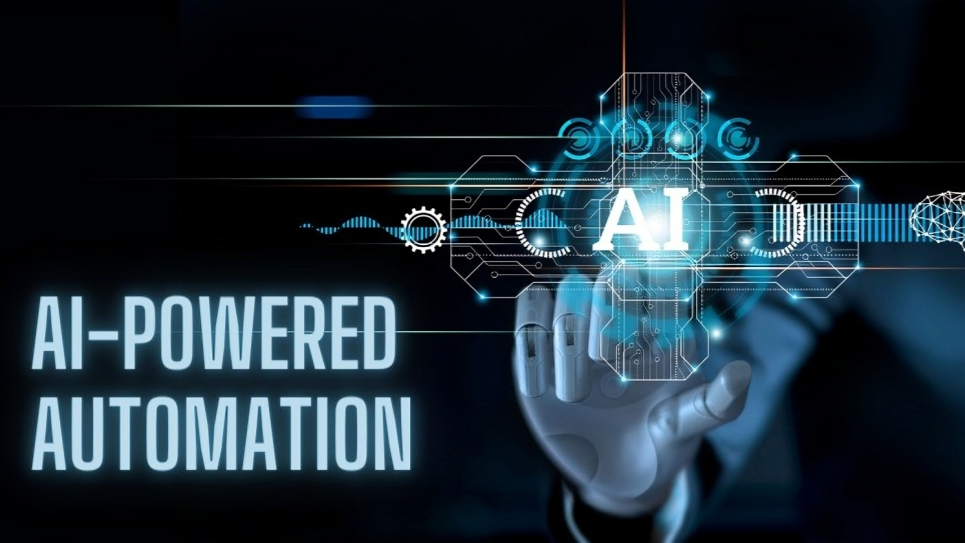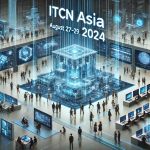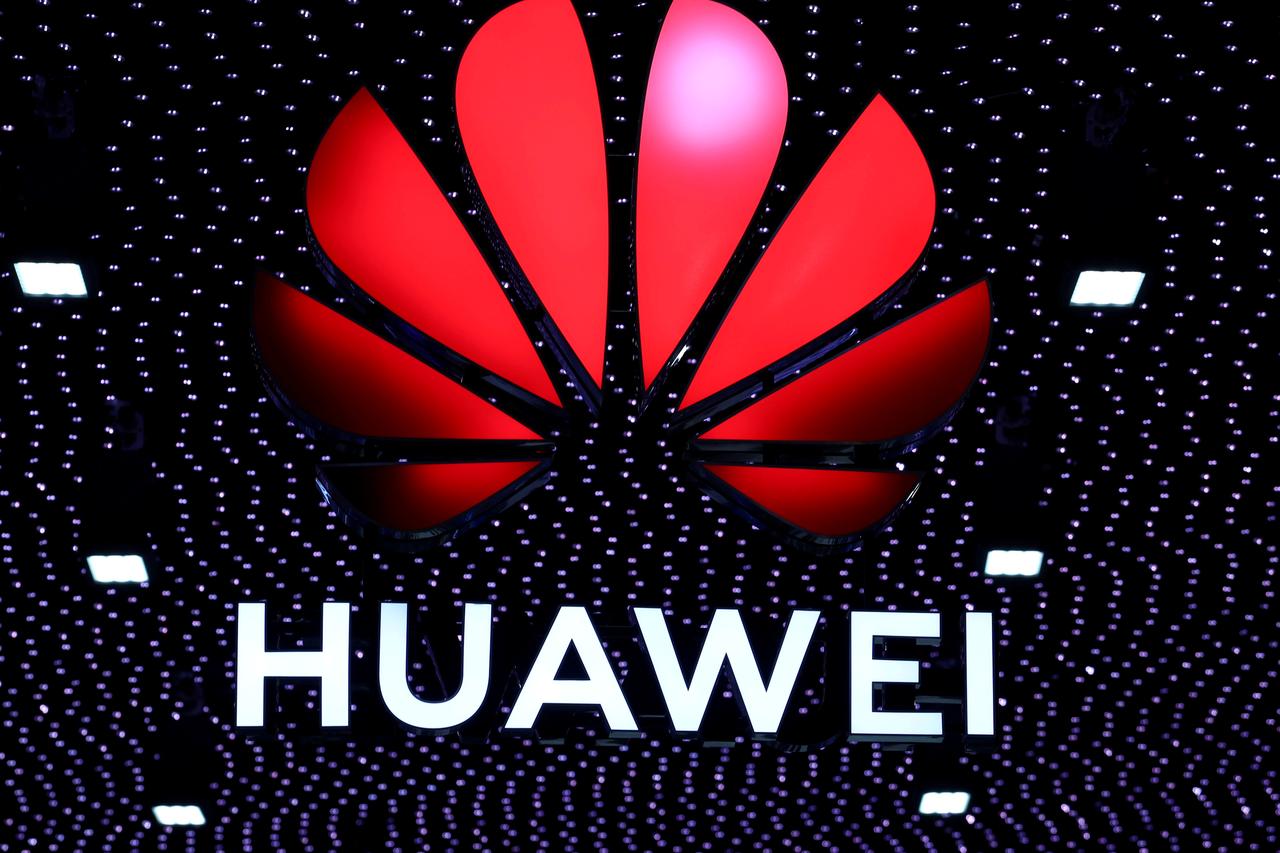AI & Marketing Automation: In the era of rapid technological advancements, businesses continuously seek ways to optimize their marketing procedures and maintain a competitive edge. The advent of Artificial Intelligence (AI) has transformed the domain of marketing automation by providing a diverse array of potent instruments that can amplify effectiveness, output, and client satisfaction. According to HubSpot, 28% of the top companies across industries actively use marketing automation and AI marketing tools.

However, choosing the most suitable one might take a lot of work, thanks to the vast array and variety of AI tools out there. To help you navigate these abundant waters, we have created a guide to assist you in understanding and selecting the appropriate AI marketing automation technologies that align with your objectives.
Understanding AI Marketing Automation Tools
AI marketing automation is the application of artificial intelligence technologies to streamline and enhance marketing activities. AI marketing automation technologies use machine learning algorithms to evaluate data, forecast customer behavior, and provide customized marketing messages. Marketers can effectively reach their desired audience at the optimal moment by delivering a tailored message, resulting in the highest engagement and conversions.
AI marketing automation systems are equipped with diverse characteristics that render them essential for contemporary marketers. Some notable features include:
- Personalized Messaging: AI algorithms use consumer data to understand preferences, actions, and interests, enabling marketers to craft customized marketing messages that connect with specific clients.
- Predictive Analysis: This involves the examination of both past and current data to make predictions about client behavior. AI marketing automation technologies use this analysis to anticipate customer needs and customize marketing efforts accordingly.
- Data Management: Artificial intelligence solutions effectively manage and analyze substantial amounts of data, offering essential insights that facilitate decision-making based on data and optimize campaigns.
- Automated Campaigns: These technologies streamline and mechanize recurring processes such as email marketing campaigns, social media scheduling, and lead scoring, effectively reducing the time and effort required by marketers.
Benefits of Utilizing AI Marketing Automation Tools
AI marketing automation systems bring a ton of value to businesses that are looking to stay ahead of the competition. Some of the most notable benefits include:
Enhanced Efficiency and Productivity: Automation eliminates manual operations, enabling marketers to concentrate on critical activities and amplifying efficiency and productivity. According to Salesforce, marketing automation can generate a 14.5% increase in sales productivity and a 12.2% reduction in marketing overhead.
Personalization: AI allows for the implementation of tailored experiences on a large scale, which improves customer engagement and loyalty. Adobe says that 76% of marketers who implement marketing automation see a positive ROI within a year, while 44% of them see a return within just six months. Gartner predicts that 30% of outgoing marketing messages from large organizations will be generated by AI by 2025.
Data Management and Analysis: AI systems offer potent data management and analysis capabilities, allowing businesses to extract essential insights and make informed decisions based on data. IBM says that 16% of organizations are using AI for sentiment analysis.
Typical Applications of AI Automation in Marketing Campaigns
With the variety of AI marketing automation systems available, the sky is the limit to what these tools can do. Some of the most common applications in business include:
Email Marketing: AI automation enhances email marketing by automating operations such as segmenting, personalizing, and scheduling, leading to increased engagement and conversions. According to Acend2, 65% of marketers already leverage email automation, and 35% of marketers think that content creation and email outrage are their most important features.
Social Media: Social media automation refers to tools that streamline managing social media platforms. These solutions allow for the scheduling of posts, analysis of metrics, and management of campaigns across numerous platforms. Automation makes social media management more efficient and yields better results.
Advertising: Artificial intelligence-powered advertising solutions improve targeting, ad placement, and messaging, thereby enhancing the efficacy of advertising campaigns and generating return on investment (ROI).
Strategies for Achieving Success with AI Automation in Marketing Campaigns
Here are some of the strategies that our digital marketers recommend for achieving success in AI automation:
1. Implement a system to constantly observe and enhance performance: Set measurable Key Performance Indicators (KPIs) to track the success of your AI automation efforts. By monitoring live outcomes, evaluating AI models, fine-tuning advertising strategies, and improving audience targeting, you can continuously optimize and improve the effectiveness of your marketing campaigns.
2. Emphasize the importance of automation in your marketing strategy: Incorporating AI solutions into your marketing operations can help optimize workflows, enhance efficiency, and ultimately lead to the success of your campaigns. By utilizing AI tools for audience research, customer journey mapping, idea generation, content research, keyword research, trend analysis, and competitor monitoring, you can streamline processes and improve campaign effectiveness.
3. Evaluate and improve your artificial intelligence models: Continuously assessing and enhancing your AI models is crucial to ensuring maximum efficiency and desired outcomes. By staying updated on the latest trends and advancements in AI technology, you can adapt your strategies to meet the evolving needs of your target audience and stay ahead of the competition.
Overall, by following these strategies and leveraging the power of AI automation in your marketing campaigns, you can unlock new opportunities for growth, efficiency, and success in reaching your target audience.
Best AI Tools for Marketing Automation
In the ever-evolving marketing automation landscape, AI tools are crucial in streamlining processes and enhancing campaign effectiveness. Here are some (but not all!) of the top AI tools available across various categories:
AI Tools for Audience Research
- Answer The Public: This social listening tool provides valuable insights into potential audiences by analyzing search queries and generating data-driven content ideas.
- Answer Socrates: Offering insights into the types of questions people are searching for, Answer Socrates helps marketers understand user intent and tailor their content accordingly.
- SparkToro: With its comprehensive audience research capabilities, SparkToro gathers data about potential customers, enabling marketers to refine their targeting strategies effectively.
- Google Trends: This tool is invaluable for discovering trending topics and content that resonates with audiences. It allows marketers to stay ahead of the curve and create relevant campaigns.
AI Tools for Customer Journey Mapping
- Kissmetrics: By analyzing customer data, Kissmetrics provides insights into customer behavior and brand interactions, facilitating the creation of more personalized and effective marketing campaigns.
- Mixpanel: By offering robust analytics capabilities, Mixpanel enables marketers to better understand customer behavior and interactions across various touchpoints.
- Amplitude: This tool analyzes the customer journey to identify friction points and optimize conversion paths, helping marketers enhance the effectiveness of their campaigns.
- Semrush Persona: By leveraging AI-powered persona templates, Semrush Persona enables marketers to build detailed buyer personas, ensuring targeted and relevant messaging.
AI Tools for Idea Generation and Content Research
- ChatGPT: With its natural language processing capabilities, ChatGPT assists marketers in generating content ideas and conducting initial research based on detailed prompts.
- ChatSpot: This free AI-powered assistant combines the power of ChatGPT with the unique data sources available from your HubSpot CRM. It can also be used to help write blog content, generate images, create competitor analysis, and lots more.
- Reddit: By exploring relevant subreddits, marketers can gather valuable insights and trends that can be fed into AI tools for further content ideation and research.
- MarketMuse: Offering content planning, optimization, and competitor analysis features, MarketMuse helps marketers create data-driven content strategies that resonate with their target audience.
AI Tools for Trend Analysis and Forecasting
- Talkwalker: Leveraging AI-powered tools, Talkwalker helps marketers identify upcoming trends and stay informed about industry developments, allowing for timely adjustments to marketing strategies.
- Zoho Social: Offering visualization tools and insights, Zoho Social enables marketers to predict trends and adapt their marketing strategies accordingly, maximizing ROI and effectiveness.
AI Tools for Competitor Monitoring
- Rival IQ: This AI tool provides comprehensive competitor monitoring capabilities, allowing brands to gain insights into competitor strategies and performance across various channels.
- Brandwatch: With its AI-driven approach, Brandwatch monitors competitor brands’ online presence in real-time, offering valuable insights for competitive analysis and strategic decision-making.
- Sprout Social: By analyzing rival brands’ performance on social media, Sprout Social helps marketers understand competitor strategies and trends, enabling them to refine their social media tactics effectively.
When it comes to marketing automation, AI tools are indispensable for streamlining processes, enhancing audience insights, and optimizing campaign performance. Whether it’s audience research, customer journey mapping, content ideation, or competitor monitoring, leveraging the right AI tools can empower marketers to drive meaningful engagement and achieve their business objectives efficiently.
Final Thought:
The integration of AI into marketing automation is no longer a luxury but a necessity for businesses aiming to thrive in today’s competitive landscape. By understanding the core principles of AI marketing automation and leveraging the right tools, marketers can unlock unparalleled opportunities to enhance efficiency, personalize experiences, and drive tangible results. Embracing AI is not merely about adopting technology; it’s about harnessing its potential to build stronger customer relationships and achieve sustainable growth.






